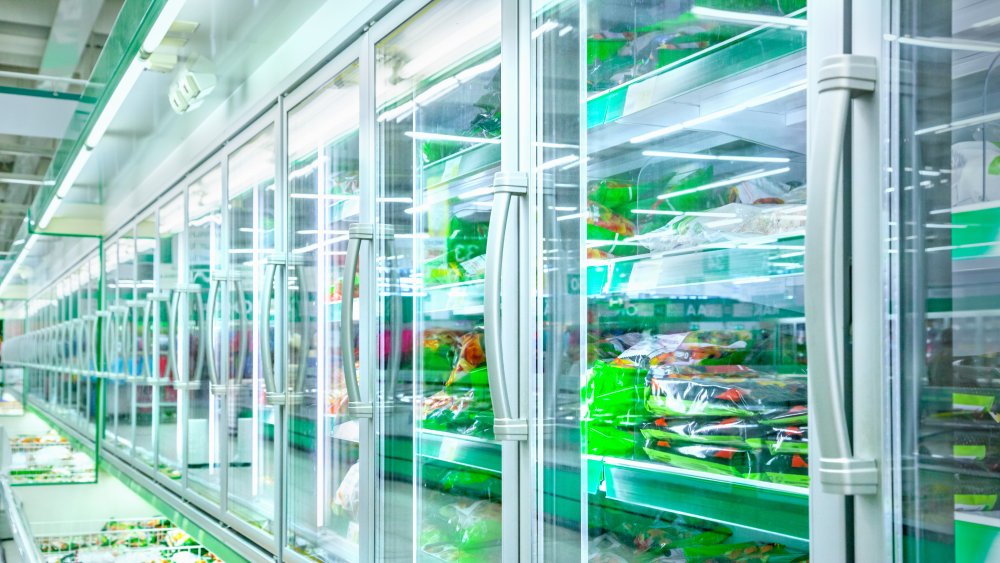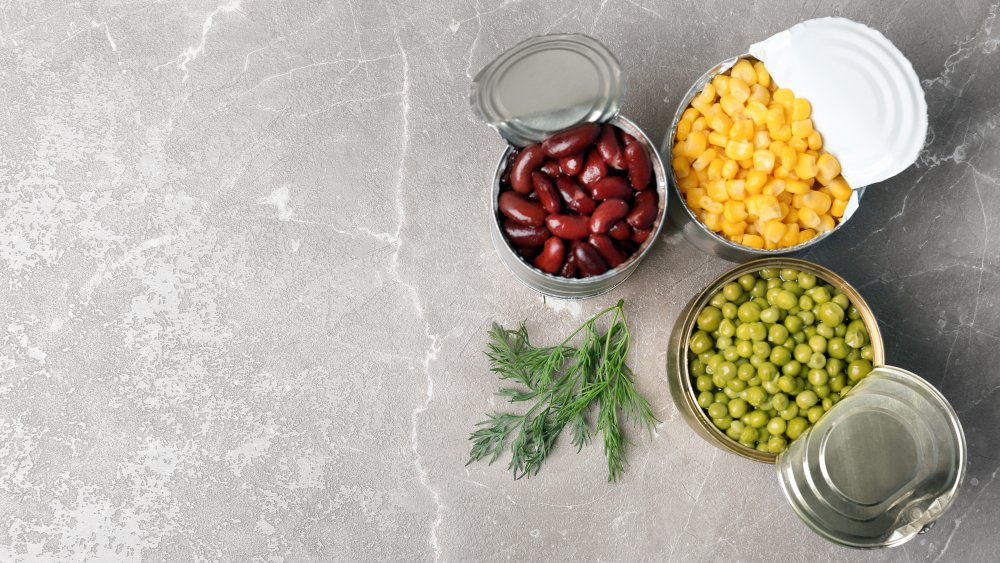The Reason Frozen Vegetables Are Healthier Than Canned
For many, eating fresh vegetables every day can be a difficult task. Fresh produce has a short shelf life and can have a higher price tag, especially for organic offerings, so you might end up having to toss away spoiled vegetables that you already bought for a premium price. To avoid this, people often turn to more budget-friendly options — frozen and canned vegetables — to get their daily five servings. But between the two choices, which is best for your health? Experts overwhelmingly say frozen — and here's why.
Frozen vegetables are usually flash-frozen during peak harvest, meaning their nutritional content is preserved at its highest. This freezing process leaves the dietary fiber content pretty much intact as well, similar to that of fresh vegetables (via Spoon University). For Food Network, Kerri-Ann Jennings, M.S., R.D., wrote that frozen produce "stays frozen until you're ready to use it," meaning it's "often a better bet nutritionally" than fresh varieties that have been sitting in the fridge for a while.
In contrast, Jennings noted that "canned produce is cooked as part of the canning process, so it's often lower in water-soluble vitamins." According to Guiding Stars, a nutrition rating system, during the heat of the canning process, most of the nutrients that the vegetables contain end up in the water they sit in instead.
Canned vegetables may have health risks
In addition to having fewer nutrients, canned vegetables are not the best option for your health because they are often preserved with high amounts of sodium and sugar. According to Examine, canned vegetables overall tend to be more processed than their frozen counterparts. During the canning process, blanching vegetables is a common practice, as is the addition of syrup, salt and "additives that carry health risks of their own."
Another health-related disadvantage of canned vegetables comes not from the preserving process but from the cans themselves. Examine also reported that some cans are lined with bisphenol-A (BPA), which is a "chemical associated with heightened risk of cancer." Both the acidity of produce and the heat from sterilizing it can cause BPA to leak inside, contaminating what you eat.
Besides BPA leakage, another concern with canned vegetables is botulism, which is a serious illness caused by botulinum toxins that can lead to paralysis. While this is rare with commercially-canned food, Spoon University warned that the risk increases with food that is canned improperly at home, where less precaution might be used for "avoiding dented, bulging, rusting cans or those that have a bad odor."
When enjoying vegetables, it seems that when fresh is not an option, the healthiest choice is frozen.

